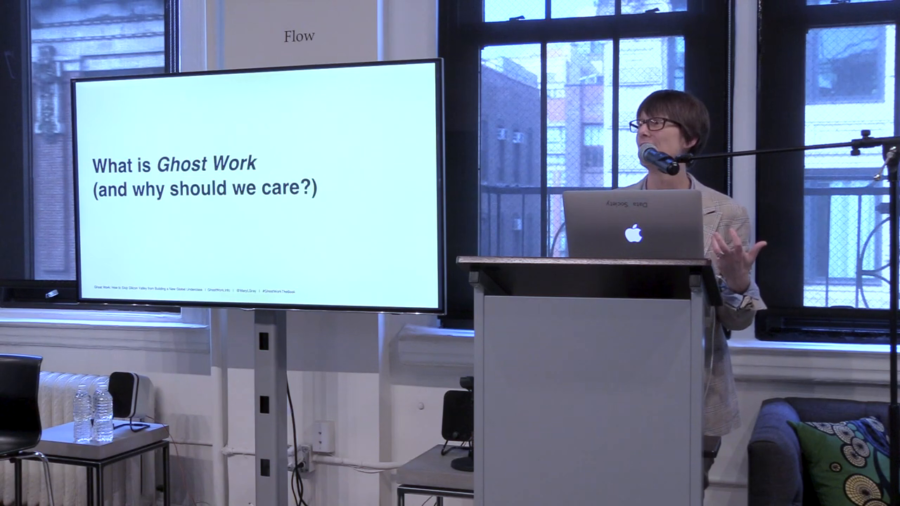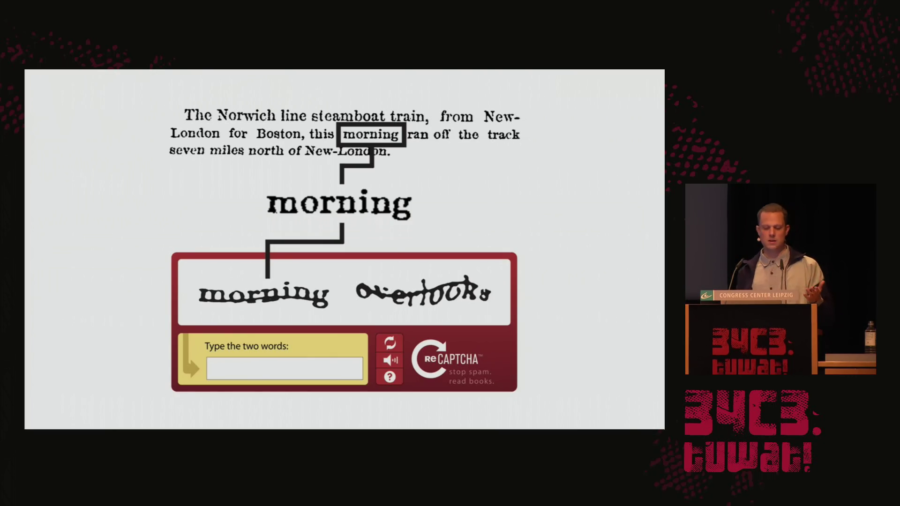What is this condition? I would summarize it as people extending computational systems by offering their bodies, their senses, and their cognition. And specifically, bodies and minds that can be easily plugged in and later easily be discarded. So bodies and minds algorithmically managed and under the permanent pressure of constant availability, efficiency, and perpetual self-optimization.
Archive

I’m just going to say it, I would like to completely blow up employment classification as we know it. I do not think that defining full-time work as the place where you get benefits, and part-time work as the place where you have to fight to get a full-time job, is an appropriate way of addressing this labor market.

We have to be aware that when you create magic or occult things, when they go wrong they become horror. Because we create technologies to soothe our cultural and social anxieties, in a way. We create these things because we’re worried about security, we’re worried about climate change, we’re worried about threat of terrorism. Whatever it is. And these devices provide a kind of stopgap for helping us feel safe or protected or whatever.
The point being that this isn’t just some random thing about Rube Goldberg machines, it’s also about changes in art. It’s a broad pattern that happens whenever there’s a major technological shift, at least for the last hundred years. You get these useless machines that self-justify.

